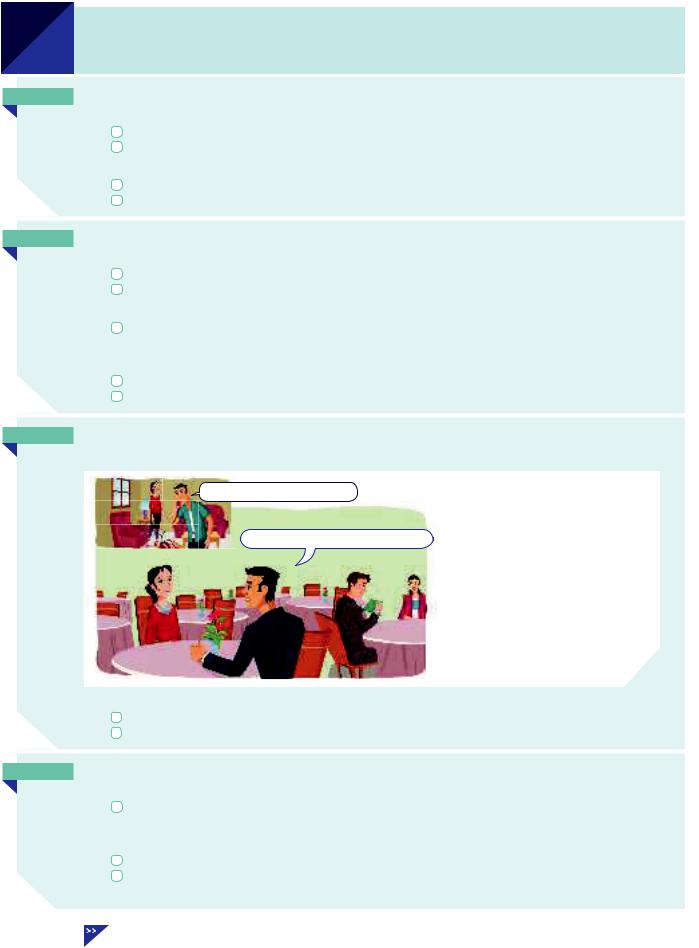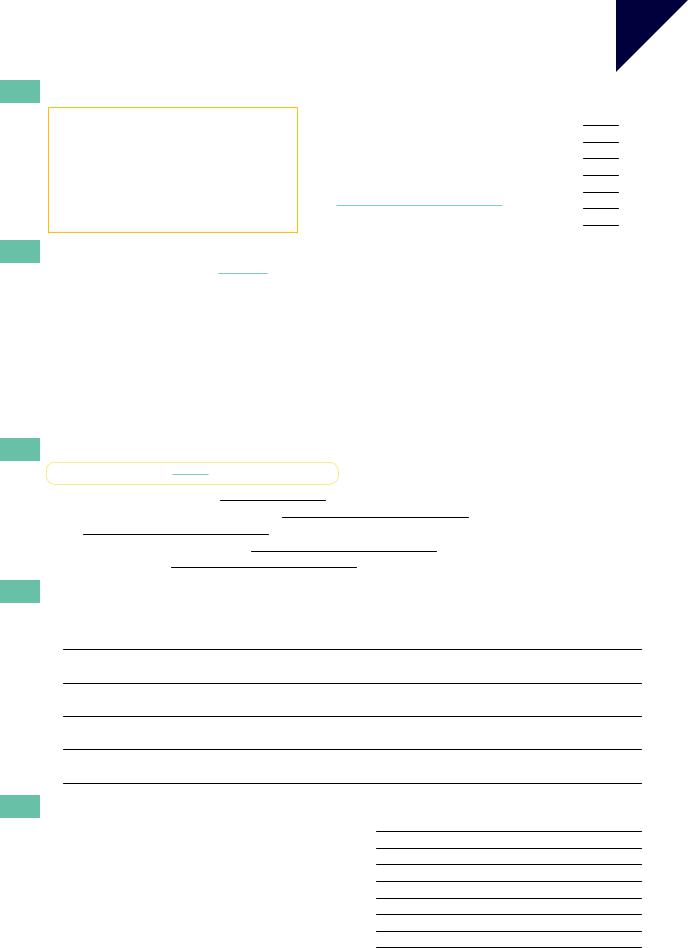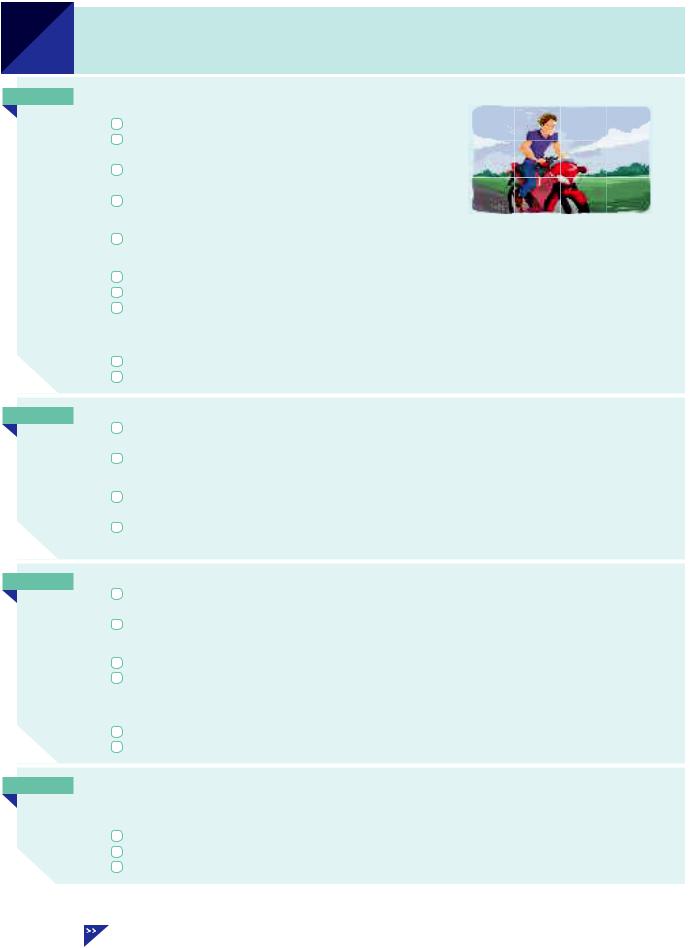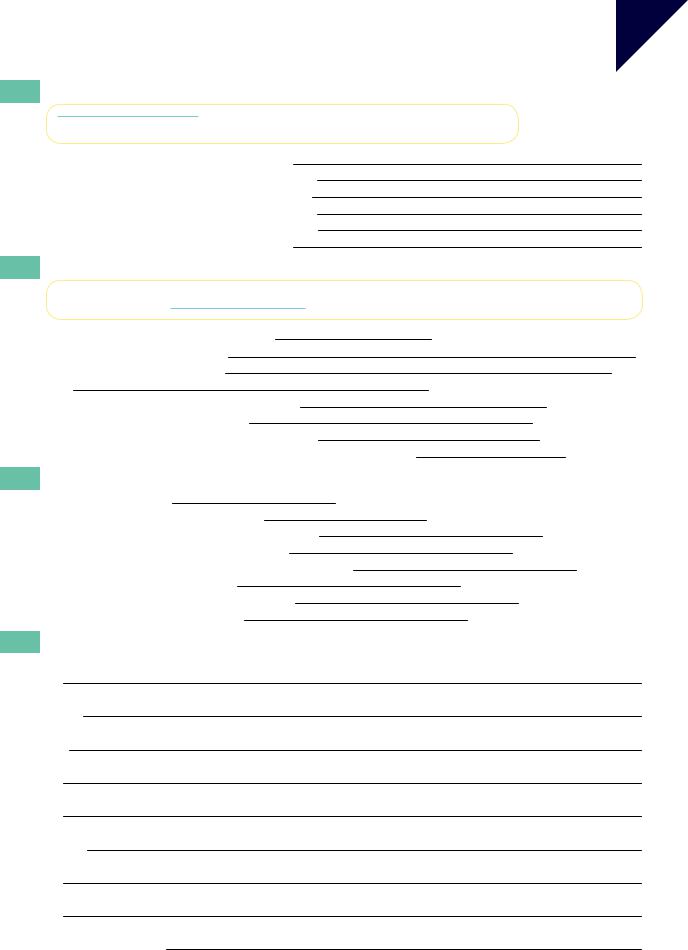
- •Contents
- •Thanks
- •To the student
- •To the teacher
- •3 Present continuous and present simple 1 (I am doing and I do)
- •10 Present perfect continuous and simple (I have been doing and I have done)
- •11 how long have you (been) … ?
- •12 for and since when … ? and how long … ?
- •13 Present perfect and past 1 (I have done and I did)
- •14 Present perfect and past 2 (I have done and I did)
- •15 Past perfect (I had done)
- •16 Past perfect continuous (I had been doing)
- •17 have and have got
- •18 used to (do)
- •19 Present tenses (I am doing / I do) for the future
- •20 I’m going to (do)
- •21 will and shall 1
- •22 will and shall 2
- •23 I will and I’m going to
- •24 will be doing and will have done
- •26 can, could and (be) able to
- •27 could (do) and could have (done)
- •28 must and can’t
- •29 may and might 1
- •30 may and might 2
- •31 have to and must
- •32 must mustn’t needn’t
- •33 should 1
- •34 should 2
- •35 I’d better … it’s time …
- •36 would
- •39 if I knew … I wish I knew …
- •40 if I had known … I wish I had known …
- •41 wish
- •42 Passive 1 (is done / was done)
- •43 Passive 2 (be done / been done / being done)
- •44 Passive 3
- •45 it is said that … he is said to … he is supposed to …
- •46 have something done
- •47 Reported speech 1 (he said that …)
- •48 Reported speech 2
- •49 Questions 1
- •52 Question tags (do you? isn’t it? etc.)
- •53 Verb + -ing (enjoy doing / stop doing etc.)
- •54 Verb + to … (decide to … / forget to … etc.)
- •55 Verb (+ object) + to … (I want you to …)
- •56 Verb + -ing or to … 1 (remember, regret etc.)
- •57 Verb + -ing or to … 2 (try, need, help)
- •58 Verb + -ing or to … 3 (like / would like etc.)
- •59 prefer and would rather
- •60 Preposition (in/for/about etc.) + -ing
- •61 be/get used to … (I’m used to …)
- •63 there’s no point in -ing, it’s worth -ing etc.
- •64 to … , for … and so that …
- •65 Adjective + to …
- •66 to … (afraid to do) and preposition + -ing (afraid of -ing)
- •67 see somebody do and see somebody doing
- •68 -ing clauses (He hurt his knee playing football.)
- •69 Countable and uncountable 1
- •70 Countable and uncountable 2
- •71 Countable nouns with a/an and some
- •74 the 2 (school / the school etc.)
- •75 the 3 (children / the children)
- •77 Names with and without the 1
- •78 Names with and without the 2
- •79 Singular and plural
- •80 Noun + noun (a bus driver / a headache)
- •81 -’s (your sister’s name) and of … (the name of the book)
- •82 myself/yourself/themselves etc.
- •83 a friend of mine my own house on my own / by myself
- •84 there … and it …
- •85 some and any
- •87 much, many, little, few, a lot, plenty
- •90 all every whole
- •91 each and every
- •92 Relative clauses 1: clauses with who/that/which
- •94 Relative clauses 3: whose/whom/where
- •95 Relative clauses 4: extra information clauses (1)
- •96 Relative clauses 5: extra information clauses (2)
- •97 -ing and -ed clauses (the woman talking to Tom, the boy injured in the accident)
- •98 Adjectives ending in -ing and -ed (boring/bored etc.)
- •99 Adjectives: a nice new house, you look tired
- •100 Adjectives and adverbs 1 (quick/quickly)
- •102 so and such
- •104 quite, pretty, rather and fairly
- •105 Comparative 1 (cheaper, more expensive etc.)
- •106 Comparative 2 (much better / any better etc.)
- •107 Comparative 3 (as … as / than)
- •108 Superlative (the longest / the most enjoyable etc.)
- •109 Word order 1: verb + object; place and time
- •110 Word order 2: adverbs with the verb
- •111 still any more yet already
- •112 even
- •114 in case
- •116 as (as I walked … / as I was … etc.)
- •117 like and as
- •119 during for while
- •121 at/on/in (time)
- •122 on time and in time at the end and in the end
- •123 in/at/on (position) 1
- •124 in/at/on (position) 2
- •125 in/at/on (position) 3
- •126 to, at, in and into
- •127 in/on/at (other uses)
- •129 Noun + preposition (reason for, cause of etc.)
- •130 Adjective + preposition 1
- •131 Adjective + preposition 2
- •132 Verb + preposition 1 to and at
- •134 Verb + preposition 3 about and of
- •135 Verb + preposition 4 of/for/from/on
- •136 Verb + preposition 5 in/into/with/to/on
- •137 Phrasal verbs 1 Introduction
- •138 Phrasal verbs 2 in/out
- •139 Phrasal verbs 3 out
- •142 Phrasal verbs 6 up/down
- •143 Phrasal verbs 7 up (1)
- •144 Phrasal verbs 8 up (2)
- •145 Phrasal verbs 9 away/back
- •Additional exercises
- •Study guide
- •Key to Exercises
- •Key to Additional exercises (see page 302)
- •Key to Study guide
- •Index

Unit
32 must mustn’t needn’t
Amust and mustn’t
You must do something = it is necessary that you do it:
Don’t tell anybody what I said. You must keep it a secret.
We don’t have much time. We must hurry.
You mustn’t do something = don’t do it:
You must keep it a secret. You mustn’t tell anyone. (= don’t tell anyone) We must be very quiet. We mustn’t make any noise.
Bneedn’t and don’t need to
You needn’t do something = it’s not necessary to do it (but you can if you want):
We have plenty of time. We needn’t hurry. (= it is not necessary to hurry)
Joe can stay here. He needn’t come with us. (= it is not necessary for him to come)
You can also use don’t/doesn’t need to:
We don’t need to hurry.
Note that we say ‘don’t need to do’, but ‘needn’t do’ (without to).
Compare needn’t and mustn’t:
You needn’t tell Steve. You mustn’t tell Steve.
I can tell him myself. (= it is not necessary) I don’t want him to know. (= don’t tell him)
Cneedn’t have (done) Study this example situation:
Can I reserve a table for two?
We needn’t have reserved a table.
Paul and Sarah reserved a table at a restaurant.
But when they went to the restaurant, it was almost empty.
They needn’t have reserved a table.
This means: they reserved a table, but now they know this was not necessary.
Compare needn’t (do) and needn’t have (done):
Everything will be OK. You needn’t worry. (it is not necessary)
Everything was OK. You needn’t have worried. (you worried, but it was not necessary)
Dneedn’t have (done) and didn’t need to (do)
He needn’t have done something = he did it, but now we know that it was not necessary:
Why did he get up at 5 o’clock? He needn’t have got up so early. He could have stayed in bed longer.
|
He didn’t need to do something = it was not necessary to do it. It doesn’t matter whether he did it or not: |
|
|
He didn’t need to get up early, so he didn’t. |
|
|
He didn’t need to get up early, but it was a beautiful morning, so he did. |
|
|
You can also say ‘He didn’t have to get up’ in these examples. |
|
|
|
|
|
must (‘You must be tired’) Unit 28 have to and must Unit 31 |
|
64 |
Modal verbs (can/could/will/would etc.) Appendix 4 American English Appendix 7 |
|

Exercises |
Unit |
32 |
|
|
|
32.1 Which goes with which? Find the sentences with a similar meaning.
1 You must be very quiet.
2 You must remember your password.
3 You must be brave.
4 You must be on time.
5 You must leave the furniture as it is.
6 You must go away.
7You must forget what happened.
32.2Which is correct?
a |
You mustn’t stay here. |
1 |
f |
b |
You mustn’t be afraid. |
2 |
|
c |
You mustn’t think about it. |
3 |
|
d |
You mustn’t forget it. |
4 |
|
e |
You mustn’t be late. |
5 |
|
f |
You mustn’t make any noise. |
6 |
|
g |
You mustn’t move anything. |
7 |
|
|
|
|
|
1 |
We have plenty of time. We |
mustn’t |
/ needn’t hurry. (needn’t is correct) |
2 |
I have to talk to Gary. I must / mustn’t remember to call him. |
||
3 |
I have to talk to Gary. I mustn’t / needn’t forget to call him. |
||
4 |
There’s plenty of time for you to decide. You mustn’t / don’t need to decide now. |
||
5 |
These are important documents. We mustn’t / needn’t lose them. |
||
6 |
You mustn’t / needn’t wait for me. You go on and I’ll join you later. |
||
7 |
This is a dangerous situation and we need to be careful. We mustn’t / needn’t do anything stupid. |
||
8 |
I understand the situation perfectly. You mustn’t / don’t need to explain further. |
||
9a: What sort of house do you want to buy? Something big?
b:It mustn’t / needn’t be big – that’s not so important. But it must / mustn’t have a nice garden.
32.3Complete the sentences. Use needn’t + verb. Choose from:
|
come |
keep |
leave |
walk |
worry |
|
1 |
We have plenty of time. We |
needn’t leave |
yet. |
|||
2 |
I can manage the shopping alone. You |
with me. |
||||
3 |
We |
|
|
|
all the way home. We can get a taxi. |
|
4 |
You can delete these emails. You |
|
them. |
|||
5 |
I’ll be all right. You |
|
|
|
about me. |
|
32.4Write two sentences for each situation. Use needn’t have in the first sentence and could have in the second (as in the example). For could have, see Unit 27.
1 Why did you rush? Why didn’t you take your time?
You needn’t have rushed. You could have taken your time.
2 Why did you walk home? Why didn’t you take a taxi?
3 Why did they stay at a hotel? Why didn’t they stay with us?
4 Why did she phone me at 3 am? Why didn’t she wait until the morning?
5 Why did you shout at me? Why weren’t you more patient?
32.5Are these sentences OK? Change them where necessary.
1 We have plenty of time. We don’t need hurry. 2 Keep it a secret. You mustn’t tell anybody.
3 You needn’t to shout. I can hear you perfectly. 4 I needn’t have gone out, so I stayed at home. 5 This train is direct. You don’t need to change.
6 You mustn’t lock the door. It’s OK to leave it unlocked. 7 I needn’t have said anything, so I kept quiet.
8 I needn’t have said anything. I should have kept quiet.
We don’t need to hurry OK
Additional exercises 16–17 (pages 311–12) |
65 |

Unit
33 should 1
AYou should do something = it is a good thing to do or the right thing to do.
You can use should to give advice or to give an opinion:
You look tired. You should go to bed.
The government should do more to improve schools.
a: Should we invite Stephanie to the party? b: Yes, I think we should.
The man on the motorbike should be wearing a helmet.
You shouldn’t do something = it isn’t a good thing to do:
You shouldn’t believe everything you read in newspapers.
We oten use should with I think / I don’t think / Do you think … ? :
I think the government should do more to improve schools.
I don’t think you should work so hard.
a: Do you think I should apply for this job? b: Yes, I think you should.
Should is not as strong as must or have to:
You should apologise. (= it would be a good thing to do)
You must apologise. / You have to apologise. (= you have no alternative)
BWe use should when something is not right or what we expect:
Where’s Tina? She should be here by now. (= she isn’t here yet, and this is not normal)
The price on this packet is wrong. It should be £2.50, not £3.50.
We also use should to say that we expect something to happen:
Helen has been studying hard for the exam, so she should pass. (= I expect her to pass)
There are plenty of hotels in the town. It shouldn’t be hard to find a place to stay. (= I don’t expect it to be hard)
CYou should have done something = you didn’t do it, but it would have been a good thing to do:
You missed a great party last night. You should have come. Why didn’t you? (= you didn’t come, but it would have been good to come)
I wonder why they’re so late. They should have been here long ago.
You shouldn’t have done something = you did it, but it wasn’t a good thing to do:
I’m feeling sick. I shouldn’t have eaten so much. (= I ate too much) She shouldn’t have been listening to our conversation. It was private. (= she was listening)
Compare should (do) and should have (done):
You look tired. You should go to bed now.
You went to bed very late last night. You should have gone to bed earlier.
Dought to …
You can use ought to instead of should in the sentences on this page. We say ‘ought to do’ (with to):
Do you think I ought to apply for this job? (= Do you think I should apply … ?)
Jack ought not to go to bed so late. (= Jack shouldn’t go …)
It was a great party last night. You ought to have come. (= You should have come)
|
should 2 Unit 34 should and had better Unit 35B |
66 |
Modal verbs (can/could/will/would etc.) Appendix 4 |

Exercises |
Unit |
33 |
|
|
|
33.1 For each situation, write a sentence with should or shouldn’t + one of the following:
|
go away for a few days |
stay up so late |
look for another job |
|
put some pictures on the walls |
take a picture |
worry so much |
1 |
Anna needs a change. |
She should go away for a few days. |
|
2 |
Your salary is very low. |
You |
|
3 |
Jack always finds it hard to get up. |
He |
|
4 |
What a beautiful view! |
You |
|
5 |
Laura is always anxious. |
She |
|
6 Dan’s room isn’t very nice.
33.2Complete the sentences. Choose from:
|
should solve |
should be working OK |
shouldn’t cost more |
shouldn’t take long |
|
should receive |
should pass the exam |
should be much warmer |
should be here soon |
1 |
Helen has been studying hard, so she should pass the exam . |
|
||
2 |
Joe hasn’t arrived yet, but he |
|
. |
|
3 |
The TV has been repaired. It |
|
now. |
|
4 |
It |
|
to get to the hotel. About 20 minutes. |
|
5 |
I sent the documents to you today, so you |
|
them tomorrow. |
|
6 |
The weather is unusually cold. It |
|
at this time of year. |
|
7 |
The best way to get to the airport is by taxi. It |
|
than ten pounds. |
|
8 |
If you have a problem with the computer, try restarting it. That |
the problem. |
||
33.3 Complete the sentences. Use should … or should have … + the verb in brackets.
1 |
You look tired. You should go |
to bed. (go) |
|
2 |
You missed a great party last night. |
You should have come |
. (come) |
3 |
I’m in a dificult position. What do you think I |
now? (do) |
|
4 |
I’m sorry that I didn’t take your advice. I |
what you said. (do) |
|
5 |
We lost the game, but we were the better team. We |
. (win) |
|
6 |
We don’t see you enough. You |
|
and see us more oten. (come) |
7 |
We went the wrong way and got lost. We |
right, not let. (turn) |
|
8 |
My exam results weren’t good. I |
|
better. (do) |
33.4 Read the situations and write sentences with should / should have / shouldn’t / shouldn’t have.
1 I’m feeling sick. I ate too much.
I shouldn’t have eaten so much.
2When we got to the restaurant, there were no free tables. We hadn’t reserved one. We
3Laura told me her address, but I didn’t write it down. Now I can’t remember the house number. I
4 The shop is open every day from 8.30. It is 9 o’clock now, but the shop isn’t open yet.
5 I was looking at my phone. I wasn’t looking where I was going. I walked into a wall.
6Kate is driving. The speed limit is 30 miles an hour, but Kate is doing 50. She
7 I wasn’t feeling well yesterday, but I went to work. That was a mistake. Now I feel worse.
8 Tomorrow there is a football match between Team A and Team B. Team A are much better.
9I was driving. The car in front stopped suddenly and I drove into it. It wasn’t my fault. The driver in front
Additional exercises 16–18 (pages 311–13) |
67 |
